During a debate in Canada’s House of Commons on June 8, 2017, the Hon. Andrew Leslie, Parliamentary Secretary to the Minister of Foreign Affairs, highlighted NTI’s International Partnership for Nuclear Disarmament Verification (IPNDV) as an example of positive progress for nuclear disarmament policy. The IPNDV is an international initiative, co-led by NTI and the U.S. Department of State and involving more than 25 countries. Its focus: to build capacity among states with and without nuclear weapons, and develop innovative, technical solutions to complex monitoring and verification challenges.
The Hon. Mr. Leslie underscored the positive contribution of the IPNDV to help address “doubts and mistrust [that] can and have stalled non-proliferation, arms control, and disarmament talks in the past.” He also noted that Canada is finalizing a project to contribute to NTI’s work on IPNDV, the agreement for which was subsequently completed on June 8, 2017. Canada’s contribution of $175,000 (approx. $135,000 US dollars) will be used by NTI to build an IPNDV website for the public as well as experts, organize an IPNDV Plenary meeting later in 2017, and provide communications, outreach, and administrative support for the IPNDV.
“This financial contribution will help the important work being undertaken through this initiative [and] help the International Partnership for Nuclear Disarmament Verification continue its critical work,” said Leslie.
Below is an excerpt of his remarks. Read a full transcript of the remarks here, at sections 1050 and 1055.
(1050)
In addition to our work in this regard, Canada is supporting work on the technical issues that will need to be addressed in order to establish a credible nuclear weapons disarmament regime. This includes engagement with the International Partnership for Nuclear Disarmament Verification, which aims to develop measures for the verification of nuclear disarmament, of which I spoke earlier.
Verification systems and methods are crucial to managing risks and mitigating threats related to weapons of mass destruction, and these, especially for nuclear weapons, are essential for providing assurance that all parties are in compliance with their obligations under the regime. Doubts and mistrust can and have stalled non-proliferation, arms control, and disarmament talks in the past. Transparency and confidence provided by independent verification can be a true motivator…
(1055)
Understandably, the global skills and knowledge base for nuclear disarmament verification is limited, resulting in significant capacity gaps. Through, however, a cross-regional partnership of over two dozen countries, including the United States, the Russian Federation, the United Kingdom, France, and the People’s Republic of China, countries are now working collaboratively to develop in detail the measures required to address the technical challenges related to the monitoring of nuclear disarmament and to ensure that disarmament commitments are being faithfully implemented. This is progress.
In addition to providing a nuclear disarmament policy and technical expertise, Canada is finalizing a project, through its weapons of mass destruction threat reduction program, that contributes to the Nuclear Threat Initiative, an organization that is hosting and facilitating a variety of meetings. This financial contribution will help the important work being undertaken through this initiative. Through this financial contribution, we will help the International Partnership for Nuclear Disarmament Verification continue its critical work.



